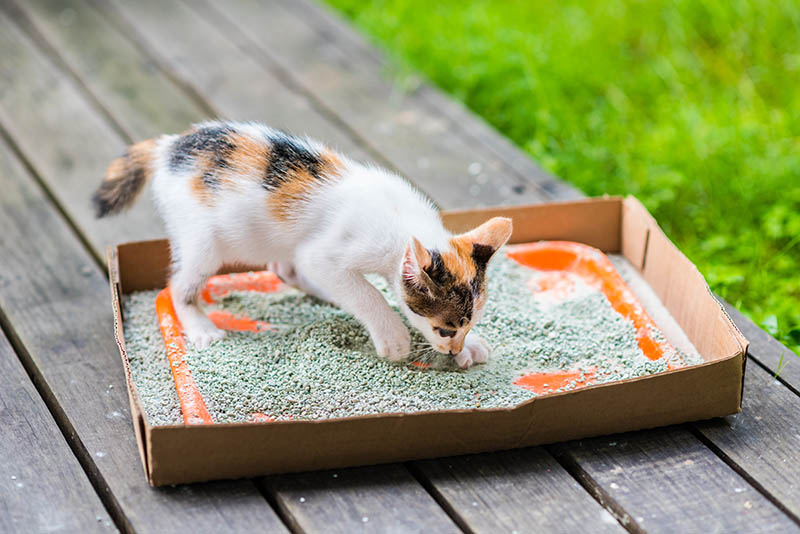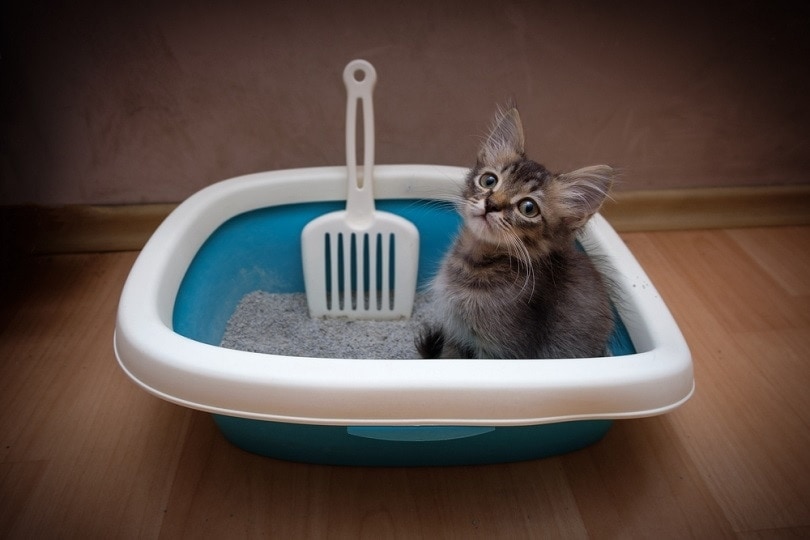Is Neem Oil Toxic to Cats? What You Need to Know

Updated on
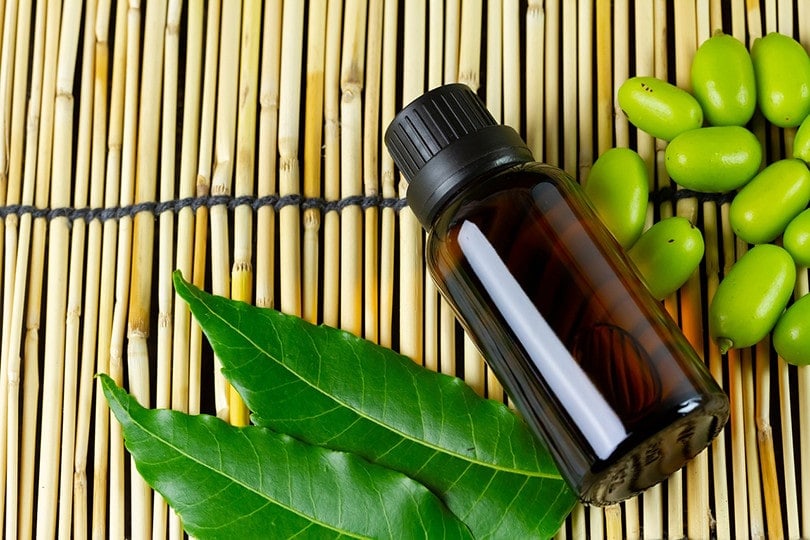
Biting insects, like mosquitoes and fleas, can irritate your cat and cause troubling infections, and it’s challenging to protect your pet when the humidity and temperature begin to rise. Neem oil is often used as an insecticide, but is it toxic to felines? No, neem oil is not poisonous to cats, and the neem tree is not listed as a poisonous plant by the ASPCA for cats or dogs.
However, the plant’s low toxicity does not mean it’s safe for regular use or safe enough for all cats. Before using any new topical treatment on your cat, check with a veterinarian for advice and possible alternatives.
How Is Neem Oil Used?
Neem trees are native to India, Sri Lanka, and Burma, but the trees are now grown in several tropical regions around the world. The oil processed from the tree is typically used as a topical skin reliever, insect repellent, anti-inflammatory medication, and ringworm treatment. Neem oil has been used as a bug repellent for horses and dogs without too many safety concerns, but cats have not been exposed to oil as much.
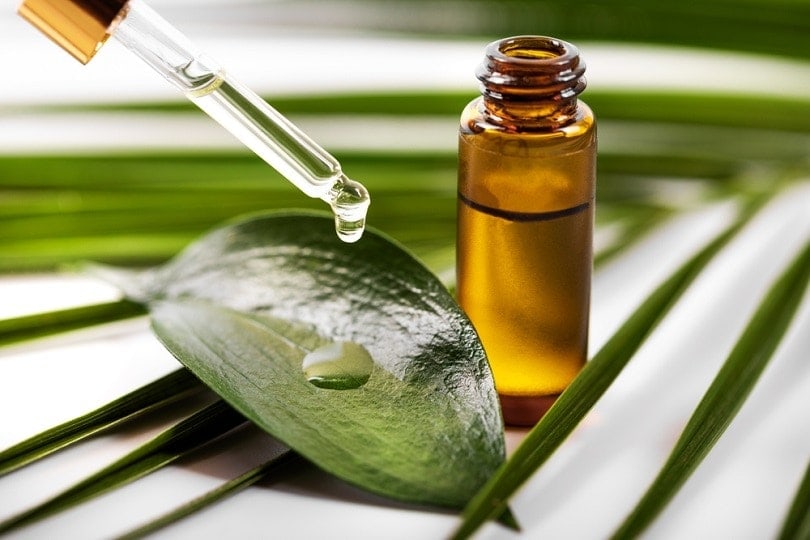
The Benefits of Neem Oil
Neem oil contains essential fatty acids and vitamin E, but the triterpenes from the oil are responsible for some of the healing properties. A triterpene is a compound found in animals and plants that helps treat inflammation and has antifungal, antiseptic, anti-inflammatory, and antihistamine properties. The azadirachtin compound is also notable because it gives neem oil its resistance to insects. Although these benefits may make neem oil sound like a miracle cure for humans and other animals, it’s not an easy substance to use. Some compare the oil’s odor to rotten garlic, and you may not want your cat’s fur covered with the potent liquid.
The Challenge of Protecting Cats From Pests
Cats are not as lucky as dogs and other animals regarding insect protection. Unfortunately, there is not a mosquito repellent on the market for humans or cats that’s safe to use on felines. Products that humans use often contain DEET. Although it’s effective, it can be hazardous to humans if ingested, and it’s toxic to cats. Other repellents that dogs use can include pyrethrin/permethrin, which is also poisonous to cats.
Mosquitoes may not be a significant problem for your cat if it lives indoors and rarely plays outside, but outdoor cats and cats that walk on a leash are more vulnerable to bites from the pests. In addition to spreading disease, mosquitoes can also rarely give your cat heartworms. There is heartworm prevention for cats, but unlike canines, they cannot be cured with today’s medications. However, preventative medications for heartworms and limiting outdoor exposure can reduce your cat’s chances of becoming infected with heartworms.

Risks of DIY Neem Formulas
Although veterinarians do not endorse using neem oil as a bug repellent for cats, some suggest only using a diluted portion for DIY formulas. To be safe, check with your veterinarian before coating your pet with a homemade treatment. If the oil is too concentrated, it can irritate the animal’s skin, and accidental ingestion could lead to vomiting, excessive salivation, appetite loss, and other medical issues. Cats in poor health and those taking medications may be at higher risk for adverse reactions to neem oil. The oil can affect cats taking thyroid hormone supplementation medication, oral diabetic agents, or insulin.
Safest Way to Avoid Mosquitoes and Other Pests
Until a safe repellent is created for cats, your only option for guarding your pet against mosquitoes is prevention. Some preventative measures may disrupt your pet’s routine or increase its anxiety, but your cat will adapt eventually and be happier living without heartworms.
Remove Standing Water in Your Yard
Mosquitoes spawn in pools of stagnant water, but you can reduce the population by dumping all the standing water on your property and changing the water daily in bird fountains. If you have a small pond or aquatic plant system, you can add tablets that kill the mosquito larvae. Most commercial tablets are effective for 30 days.
Keep Your Feline Indoors
If you live in a humid area with warm summers, your pet will probably encounter a mosquito outdoors. Keeping your cat indoors lowers the risk of heartworm infection and protects your pet from other pests and hazards. Your cat will probably be upset about a change in its territory, but you can compromise by letting the furball roam in your yard when the temperature drops. Although, be aware that mosquitoes can always get inside, and limiting outdoor time does not completely eliminate their risk for exposure.
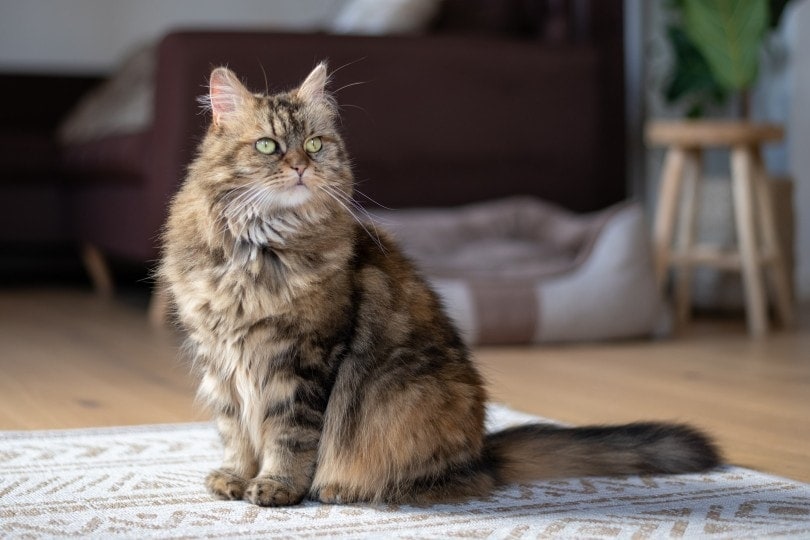
Avoid Walks in Mosquito-Prone Areas
Paths near creeks, streams, and marshy areas are prime habitats for mosquitoes, and it’s wise to avoid those locations in the evening and early morning. Mosquitoes can attack at any time of day, but they’re active in the shade during the hottest time of day.
Use a Heartworm Prevention Treatment
Heartworm prevention drugs for cats are widely available online, but you can visit your veterinarian for a prescription to ensure the medication is safe. This medication is typically a topical formulation.
Contact a Pest Control Service
If you cannot reduce the mosquito population by eliminating standing water, you may need to call a pest control technician to eliminate the pests. Using professionals is the most expensive method for pest control, but it’s more effective than using commercial products when you have a severe infestation.
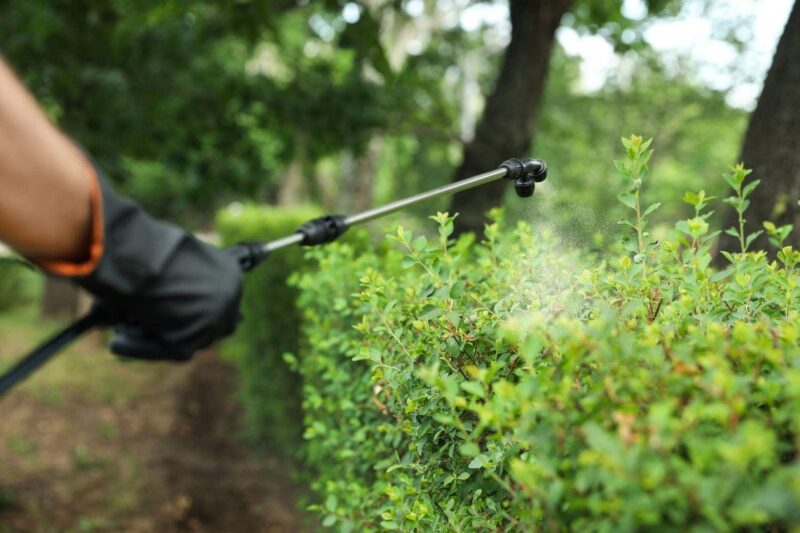
Conclusion
Using neem oil on your pet sparingly may be safe, though not worth the risk. Until more studies have been conducted on the oil’s effect on felines, your cat is better off avoiding mosquito-prone areas and using a heartworm prevention product. DIY neem formulas are becoming more common online, but a veterinarian should clear any homemade recipe before it’s applied to a cat. Neem oil has several uses, but the potent smelling substance is not recommended to smear on your pet’s shiny coat.
Featured Image Credit: Ninetechno, Pixabay


